Contract manufacturing by fluid bed and spouted bed technology: Which is better, continuous or batch process?
When running processes such as fluid bed and spouted bed drying, granulation, encapsulation and coating, which production management is most advantageous for contract manufacturers: continuous or batch mode? Gudrun Ding, Head of Business Development, Process Technology, Glatt Ingenieurtechnik provides an insight into their everyday practices and points out which mode of operation offers most benefits.
- Author: Gudrun Ding, Head of Business Development Process Technology, Glatt Ingenieurtechnik GmbH
- originally published in the magazine ‘FEI – Food Engineering & Ingredients’, issue Juni/2022, PanGlobal Media
- online at fei-online.com
A wide range of sophisticated mixing and drying systems exist for the formulation of ingredients for the food and feed industry that provide excellent results. However, when specific product properties such as free-flowing powders, dust free products, abrasion resistance, defined size/particle shape or release profiles are required, fluid bed processing is the technology of choice.
Different plant setups and variable process parameters allow almost unlimited possibilities when it comes to agglomerating of powders, drying liquids and suspensions into granules or producing compact particles from microcapsules. If required, an additional functional coating can also be applied. Processes based on fluid bed and spouted bed technology are especially suited for temperaturesensitive products. Likewise, oxidation-sensitive substances can also be treated under inert conditions to optimize their property profiles.
Product properties, economy, ecology and safety
The characteristics mentioned above make fluid bed technology particularly popular among contract manufacturers. In addition to enhancing product characteristics, cost-effectiveness and safety play a key role. Primary considerations include understanding which market a contract development and manufacturing organization (CDMO) wants to serve as well as how they want to work. Products that are traded in large volumes demand highly efficient, cost-optimized production, which favour continuous processes. This raises the question: what kind of shift model does our site allow? Are there noise protection regulations that prohibit night shifts, for example, and do we have sufficient personnel for 24/7 production?
To expand its production capacity, Swiss company Erbo Spraytec AG had to answer similar questions. The CDMO specializes in private label manufacturing with fluid bed technology. What began in 1972 with a single spray tower has now developed into a global business with encapsulated ingredients for the food, cosmetics and feed industries. In those days, the company purchased a fluidized bed system that was especially adapted for spray cooling processes. Wishing to offer new formulations based on water-soluble substances subsequently led to the acquisition of another continuous fluid bed plant with large-scale water evaporation capacity in 2009. With the addition of a ProCell 500 continuous spouted bed system and food certification, Erbo Spraytec has now diversified into other industry segments. Its range of services currently includes aqueous granulation, matrix encapsulation and various coating applications.
Dr Rolf Tona, Vice President, reflects on the factors that contributed to investing in the spouted bed processor from Glatt: “It was important for us to find a supplier that could provide the needed plant and, as well, engineer the building construction, infrastructure setup and the plant installation. Our launch partner in those days, who specialized in feed additives, had already successfully developed and upscaled a couple of formulations at the Glatt Technology Center in Weimar and that’s what ultimately tipped the scales.”
What unites their customer requirements with their own is the desire to optimize the properties of their products: universal needs include the homogenous distribution of ingredients, good flowability and a well-defined particle size distribution with only a minimal content of fines and low hygroscopicity. In recent years, demands to protect the active ingredients in formulations and, in particular, optimize their targeted release have increased considerably. Here too, in addition to the use of the appropriate matrix materials and excipients, the right technology plays an essential role. For individually tailored products and process development, the CDMO operates a pilot plant for each facility. This enables Erbo Spraytec to develop new formulations for their customers in a reasonable time period.
Fifty weeks of production – two weeks of downtime
Even after more than 10 years of operation, working in a 24/7 fourshift mode, the plant provides granulated and encapsulated products at a consistently high quality. Maintenance and repair work result in only two weeks of downtime per year. In addition, after production campaigns lasting up to four weeks, cleaning only accounts for approximately 20 hours of interruption during product changeover. On top of the processor sits a highly efficient exhaust air incineration system that has recently been augmented with an exhaust air scrubber. Various energy recovery systems increase its economic efficiency and also improve the carbon footprint of what is otherwise a very energy intensive technology. Thanks to regular process optimization, the throughput in most cases has exceeded the originally quoted figures.
“So, the plant is performing very well,” sums up Dr Tona. Cost-efficiency is paramount as most of Erbo Spraytec’s customers come from highly price-sensitive market segments. Therefore, the size of a production campaign is critical: “Our plant is designed for several hundred tons per campaign and for weeks of continuous operation. Runs in the low single-digit ton range increase production costs many times over, simply because of the cleaning efforts required. At high volumes and consistent product quality levels, continuous processing is extremely user-friendly and unbeatable.”
Glatt’s patented spouted bed technology is – like the fluid bed technology – also based on the basic principle of fluidizing particles by agitating them with upward flowing process air. Key differences are the design of the process air inlet and the extended process chamber; this creates particularly gentle conditions that are ideal for temperature-sensitive raw materials. The higher temperature spectrum of the process air is compensated by the shorter residence times. For example, this generally works very well for phytogenic additives or flavours that can’t tolerate long processing times and/or sticky or viscous liquids that are difficult to handle.
Continuous and batch operation in Glatt’s Technology Center
Glatt’s Technology Center in Weimar is not only a competence hub for continuous processes; batch processes are also very prominent. Working side by side with customers, feasibility studies are done here and product samples are generated on a weekly basis. Factors influencing both formulation and product properties are investigated to develop an optimized process. For the production of larger quantities – such as those required for marketing studies or to expedite time to market – Glatt’s highly flexible batch fluid bed systems offer numerous advantages.
Typical campaign sizes are in the low-to-mid double-digit ton range. The plant is hygienically designed for multiple product changeovers and is easy to clean. Therefore, the batch fluid bed is a much-used plant in the outsourcing business, especially for high quality products that have to be produced in smaller quantities. Homogeneity when processing active ingredients or achieving controlled release profiles with an appropriate coating can easily and reproducibly be done with batch processing. Complex products with expensive ingredients can also be refined in defined batches with manageable risk; plus, processing single batches with documentation for each lot enables simple and complete traceability. In addition, fluctuations in capacity utilization can be easily compensated for by extending the shift. Conclusion: ability and desire
In areas such as the pharmaceutical and biotech sectors, an ongoing trend has been toward patient-specific application forms and, as a result, smaller, more flexible production units. Batch processes are the standard here, with the same trend extending into the food industry. Variety, specific customer requirements and, in addition, shorter product lifecycles are making investments in large-volume production plants riskier; the move towards versatile technologies or outsourcing is becoming increasingly stronger. Which process a contract manufacturer or producer ultimately chooses depends on the market, the product and the output volume. Continuous processes are energy efficient long-runners that enable maximum process reliability with minimal operational effort for 24/7 operation. Besides flexibility, batch production allows for precisely defined processing with high content uniformity from batch to batch and seamless tracking and tracing.

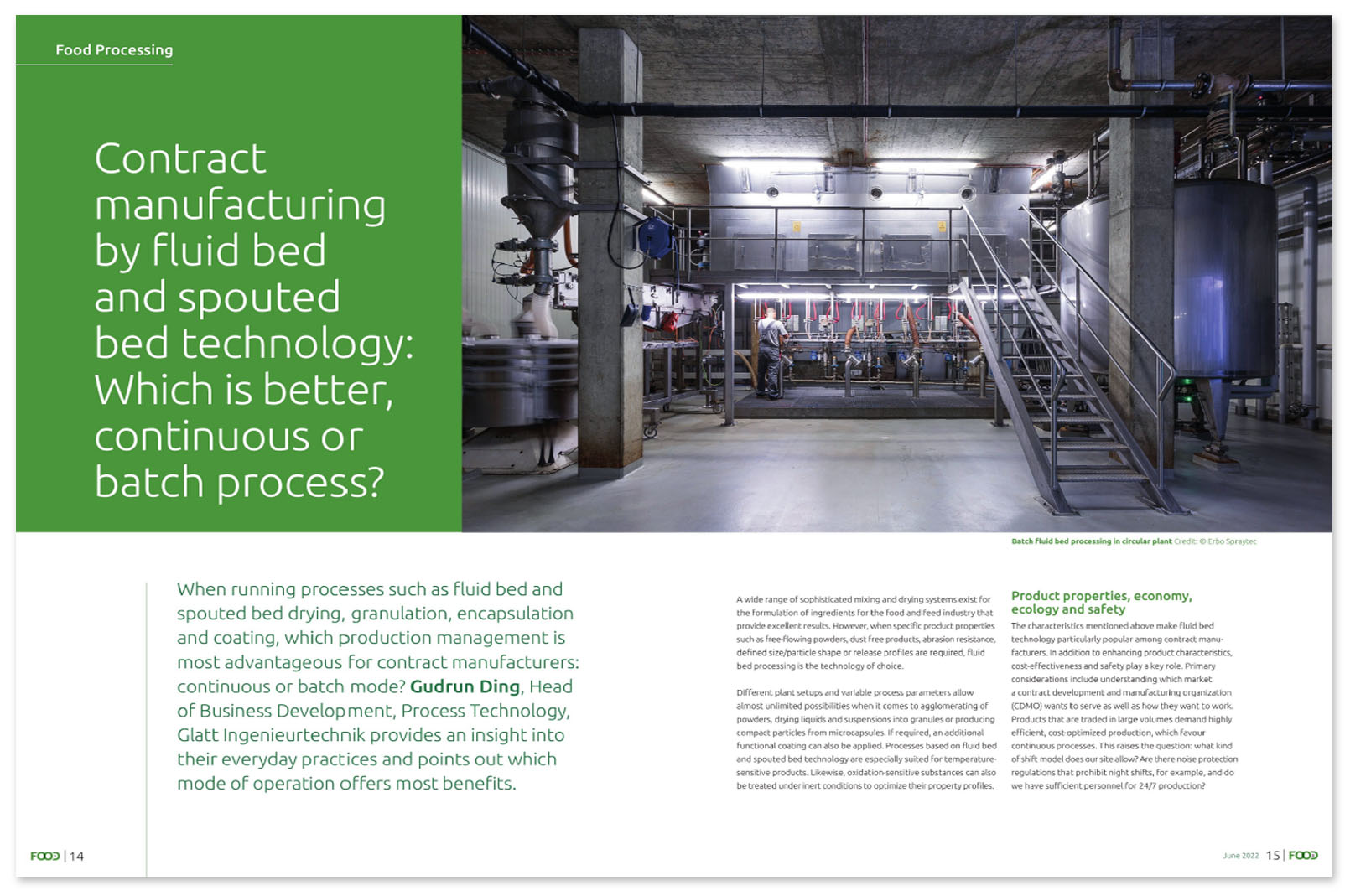
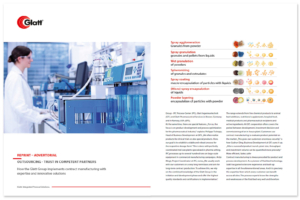
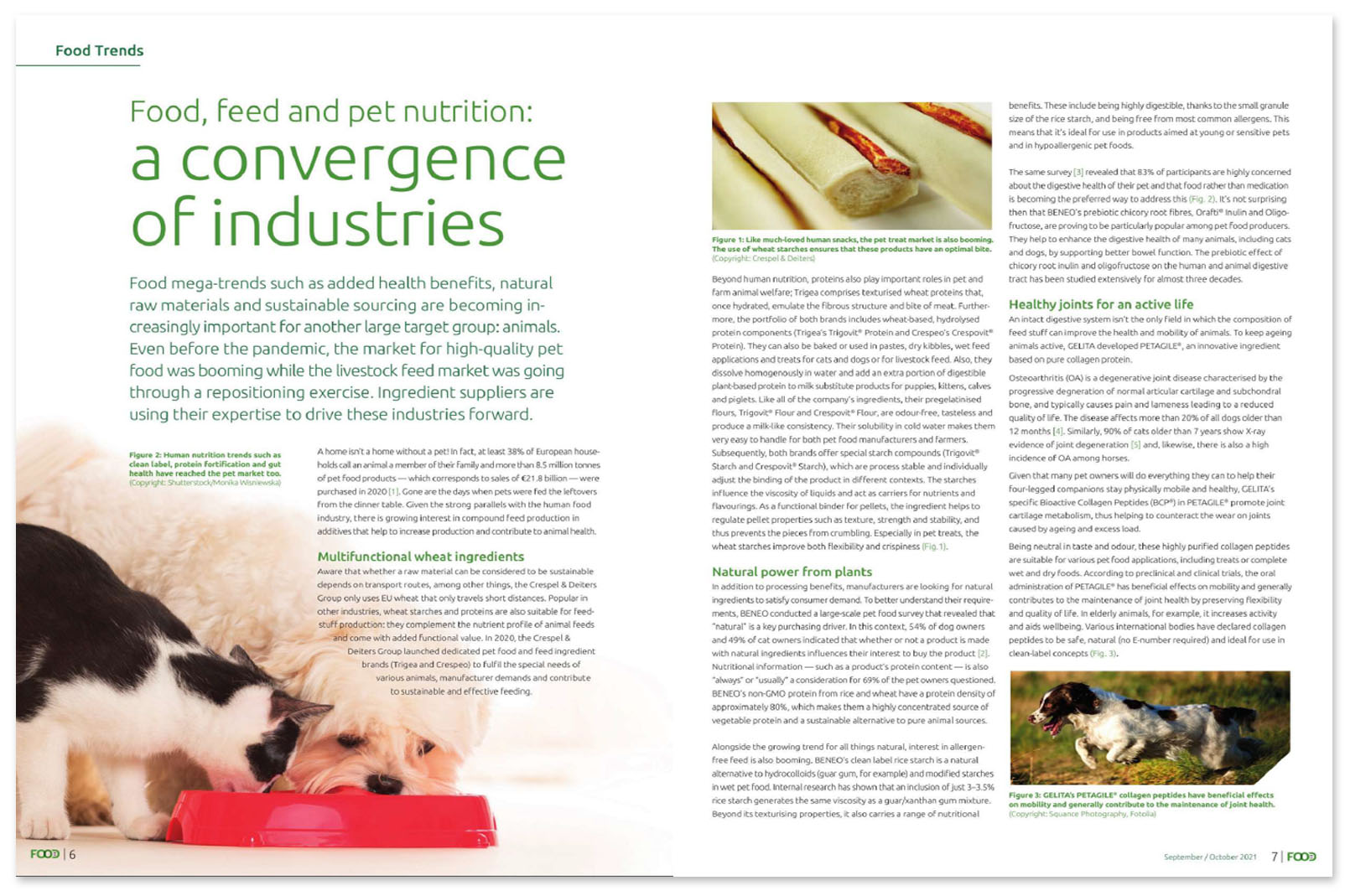
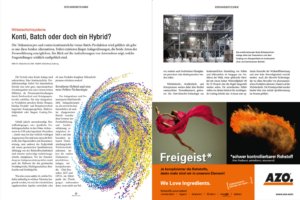
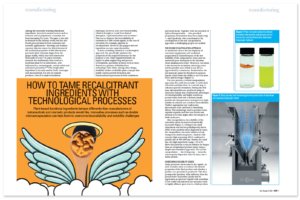
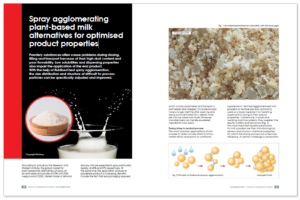
 Copyright: Glatt
Copyright: Glatt Copyright: Glatt
Copyright: Glatt